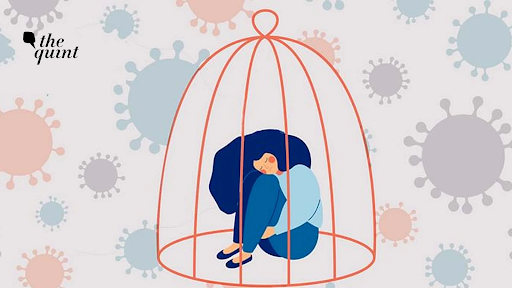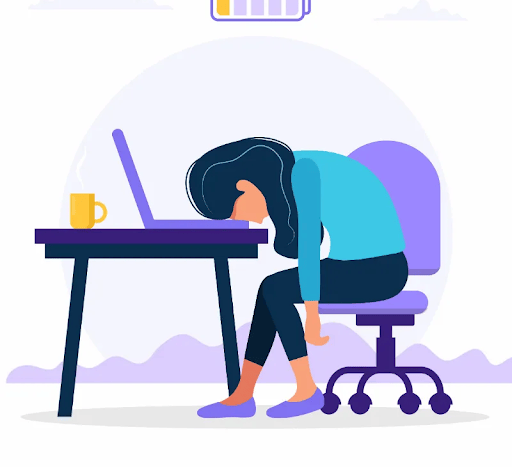
Early Warning Signs of a Mental Health Problem & 6 Tips to Safeguard Your Mental Health in the workplace


Wouldn’t it be wonderful to look forward to Mondays as much as we look forward to Fridays. In fact, I don’t even know if people still look forward to Fridays because in today’s world some of us never stop working even on Saturdays and Sundays. If it’s not one thing it’s another, but some form of work nonetheless.
This weekend as we recharge, and reset, I’d like us to think about the importance of safeguarding our mental health, particularly in the workplace (including when working from home).
We can no longer deny, ignore, or remain ignorant about the very present reality of mental illness and its devastating effects in our society today. Mental illness is real. As I have shared in other blogs, I myself have suffered from depression and burn out, and I see too many of my friends and colleagues having the same fate, while countless others continue to work in ways, and under conditions that place them at similar risk.
Today, mental health is a growing global challenge, although it is rarely discussed, hidden in the shadows, and stigmatized. According to ‘Giving Compass’ - worldwide, an estimated 1 billion suffer from anxiety, 300 million people are affected by depression, 60 million suffer from bipolar affective disorder, and about 21 million are affected by schizophrenia or other severe psychoses.
We can see then that it is in everyone’s interest to educate ourselves about the causes, symptoms and prevention or treatment of mental illness, instead of stigmatizing, misdiagnosing and failing to seek proper treatment for it.
Mental health includes our emotional, psychological, and social well-being. It affects how we think, feel, and act. It also helps determine how we handle stress, relate to others, and make choices. Positive mental health allows us to:
realize our full potential,
cope with the stresses of life,
work productively, and
make meaningful contributions to our communities.
Many factors contribute to mental health problems, including:
biological factors, such as genes or brain chemistry,
life experiences, such as trauma or abuse, and
family history of mental health problems.
For too high a percentage of people, workplace stress is probably one of the biggest challenges to good mental health. People working longer hours and the pressures of an increasingly demanding work culture are huge contributing factors to work related stress, with far reaching and long lasting damaging effects including the following:


Health problems - under high levels of stress some tend to neglect their physical care including exercise, proper diet and rest. This could result in weight gain and general poor quality of life, but also illnesses such as high blood pressure.
Burnout - with pressure coming from every direction, including more work to be done by those who remain after downsizing, or rigorous safety measures, some employees can become either mentally, emotionally and/or physically exhausted.
Insomnia – stress and anxiety could lead to many sleepless nights. With extreme lack of sleep, the body’s immune system becomes less effective, leading to increased risk of illness.
Behavioural changes – employees may turn to unhealthy substances to try and deal with these situations. More frequent smoking or heavy drinking not only have a negative effect on their health, but can worsen their situation, potentially making their problems worse.
It is often a combination of issues that take a toll on employee mental health, but two issues that I believe are prevalent in the workplace are work overload, and workplace bullying. An increased workload leads to higher stress levels and can lead to crippling anxiety. Workplace bullying can lead to a number of very serious conditions including anxiety, panic attacks, depression and Post Traumatic Stress Disorder (PTSD).
With the many changes at the workplace brought about by the COVID pandemic, these conditions are magnified, placing employees at an increased risk for mental health challenges.
Here are some early warning signs of a mental health problem:
Eating or sleeping too much or too little
Pulling away from people and usual activities
Having low or no energy
Feeling numb or like nothing matters
Having unexplained aches and pains
Feeling helpless or hopeless
Smoking, drinking, or using drugs more than usual
Feeling unusually confused, forgetful, on edge, angry, upset, worried, or scared
Yelling or fighting with family and friends
Experiencing severe mood swings that cause problems in relationships
Having persistent thoughts and memories you can't get out of your head
Hearing voices or believing things that are not true
Thinking of harming yourself or others
Inability to perform daily tasks like taking care of your kids or getting to work or school


While many organizations are implementing policies and wellness programmes to support and promote mental health wellness at work, many others do not. Whether or not, the onus is on you, the employee, whether management or line staff, to safeguard your mental health. Yes, it is your business.
What if there are no wellness programmes nor supportive managers and coworkers? Each individual has the responsibility to protect and nurture their own mental health. That means you. Make yourself a priority.
For your Weekend Reset, here are six tips to support and safeguard your mental health in relation to work:
Maintain a healthy work-life balance. Work to live, do not live to work. Set time and effort boundaries between work and the rest of your life. Stay connected with friends and have fun.
Take breaks at work. Do not get too caught up with tasks. Working long, continuous hours will take a toll on your energy, concentration, productivity and health.
Leave the workplace during lunch time. A change of scene, movement, and fresh air can often help alleviate stress.
Find some calmness. Find a quiet spot or put in your earphones and listen to some slow, quiet music. This can encourage relaxation and reduce anxiety as well as block out distractions and help you focus.
Ask for help. Don’t be afraid to speak up when the work piles up. Find and use your voice. You have a right to protect your health by acknowledging and respecting your limitations. If you find your work is spiralling out of control, or your work-life balance is out of kilter, talk to a colleague, your supervisor or a friend. Discuss the specific aspects of the work that are causing you concern. Get professional help if you need it.
Maintain good physical health. A healthy body contributes to a healthy mind. Maintaining a balanced diet, drinking adequate amounts of water, getting at least 8 hours of sleep daily, and exercising for at least thirty minutes each day are habits that are foundational to your overall health.
Learn and develop these and other coping skills.
If you are feeling depleted and defeated and want to recharge and reset your life, book a free consultation with me here to see if my programme ‘Recharge & Reset: Maximize Your Potential, Fulfil Your Purpose’, is for you.
I would love to hear your thoughts on whether it is possible to look forward to going to work on a Monday with excitement and anticipation? Click on the comment button and share your views and ideas on this.
